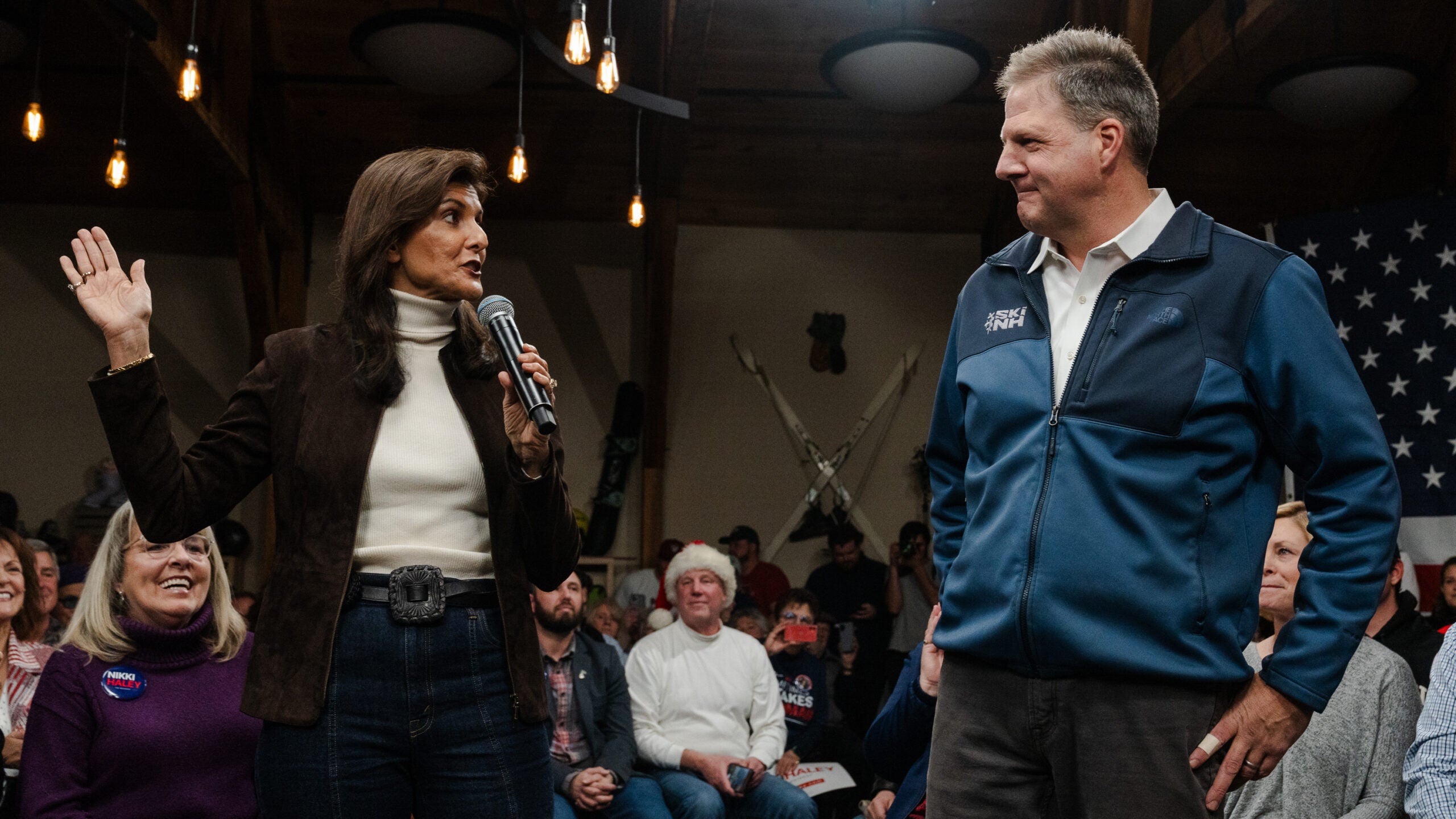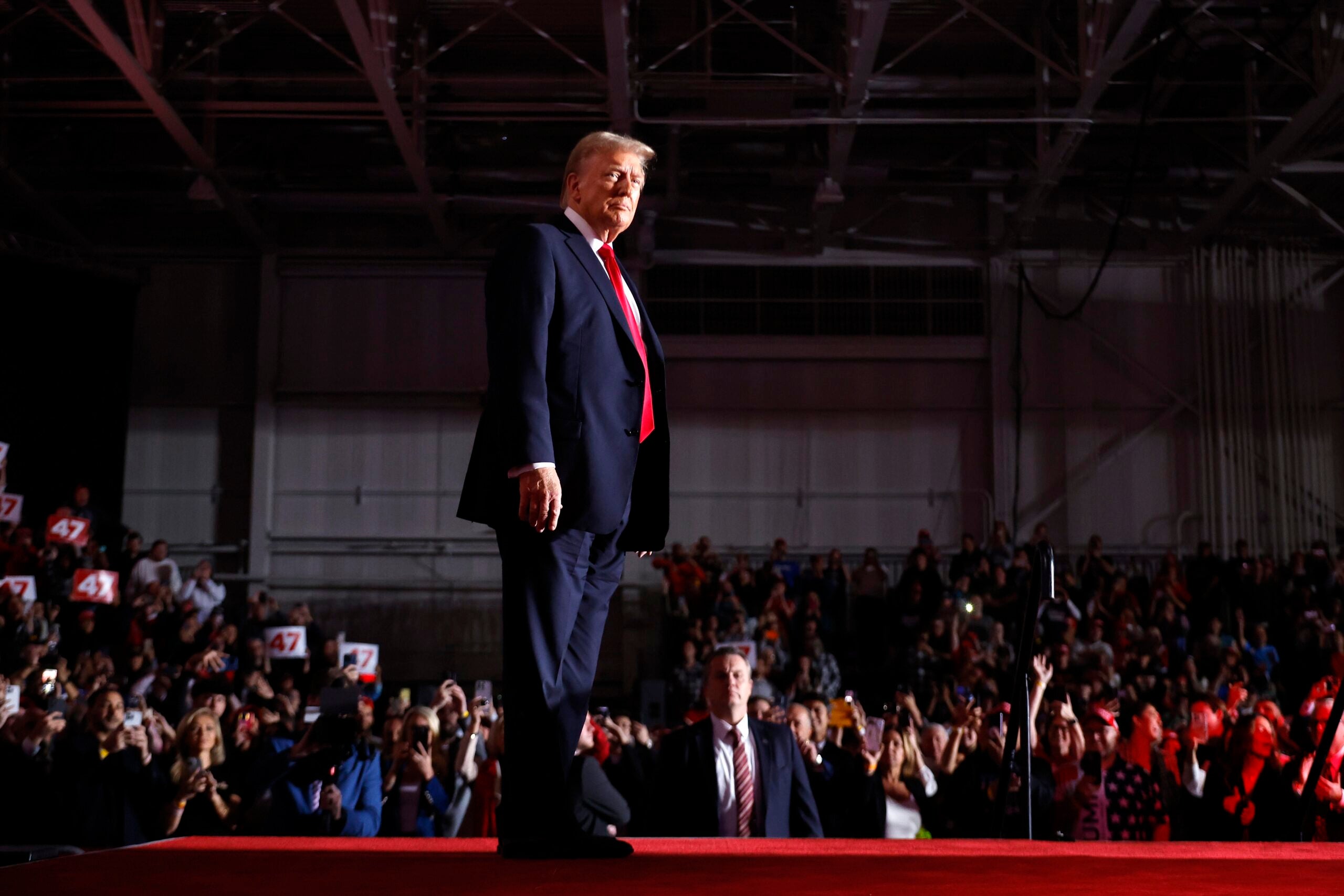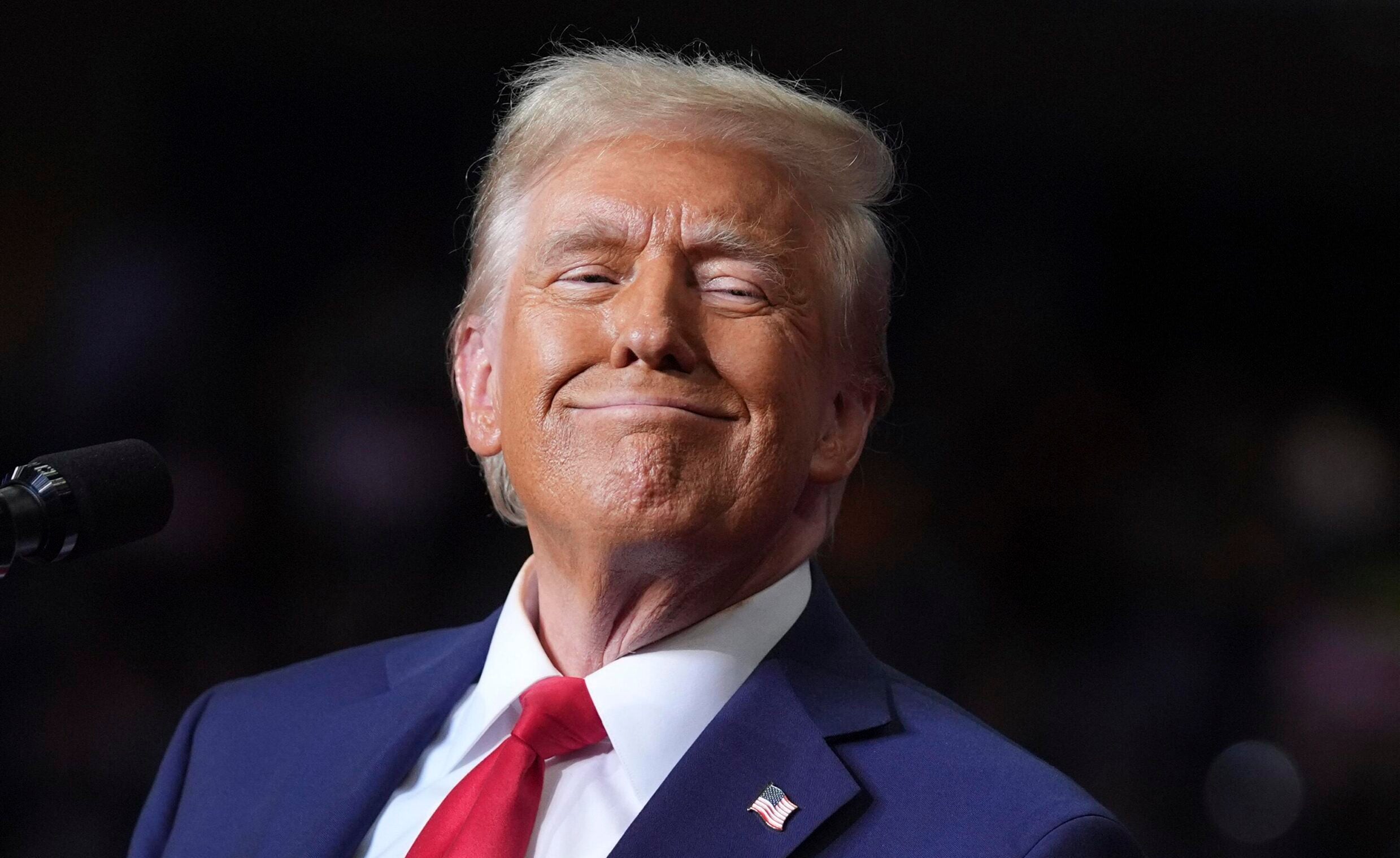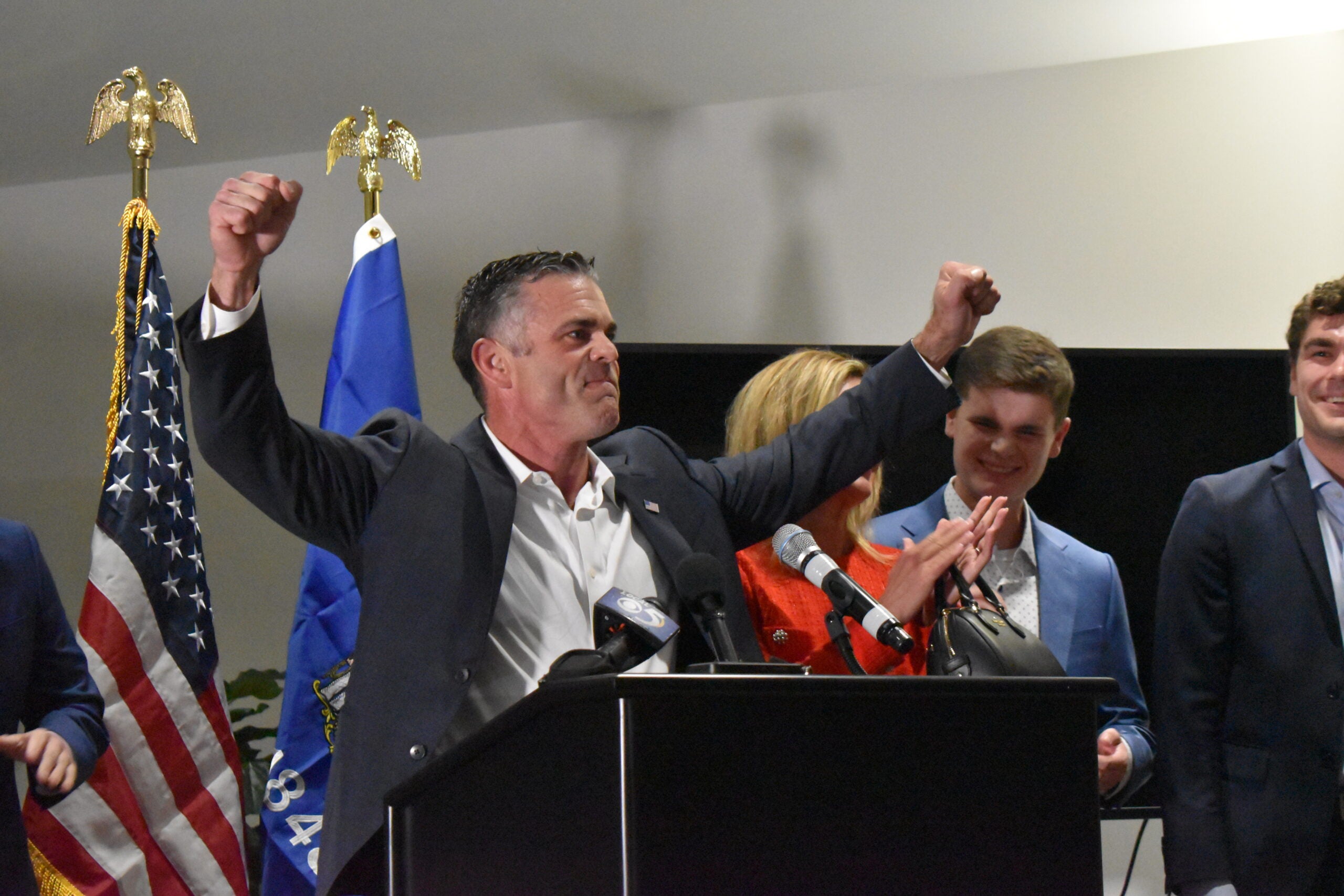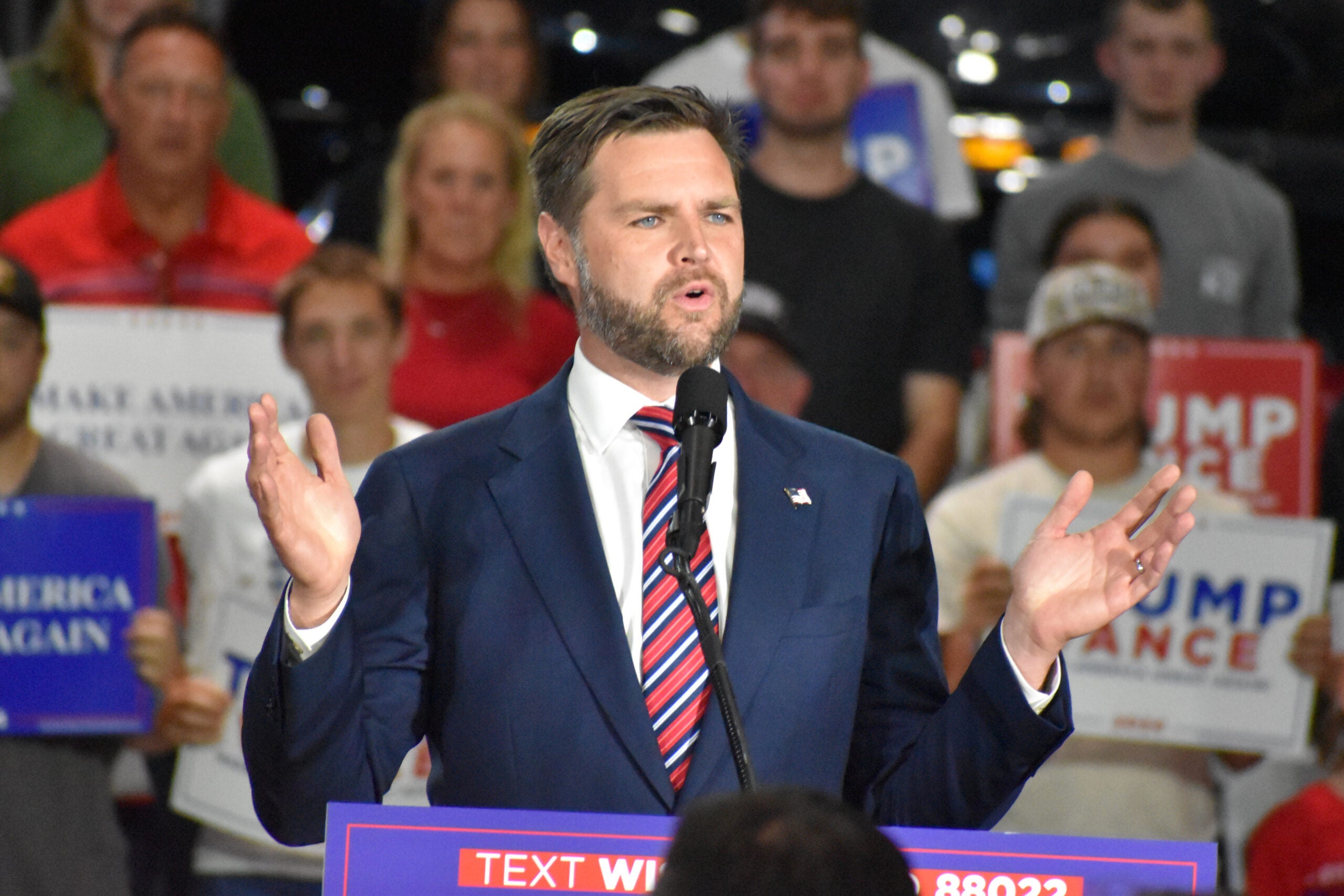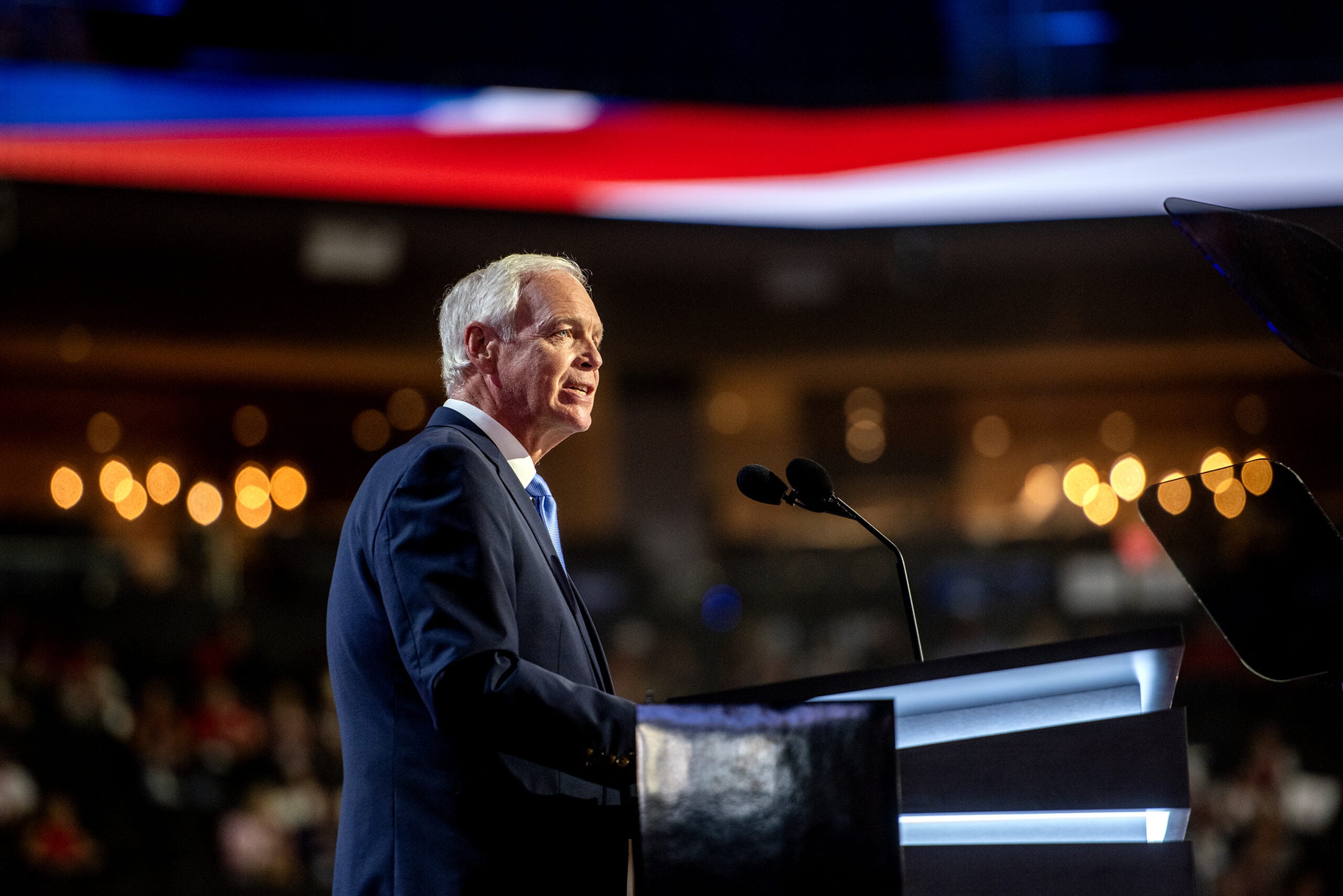The 2024 election cycle kicks off in one month with presidential nominating contests in Iowa and New Hampshire. On Jan. 15, Iowa will hold its caucus,which has long marked the beginning of the presidential election season. And then the following week, New Hampshire will have the nation’s first presidential primary on Jan. 23.
With President Biden running as an incumbent, the action in the early nominating states is largely on the Republican side. Former New Jersey Gov. Chris Christie, Florida Gov. Ron DeSantis, former U.N. Ambassador Nikki Haley and entrepreneur Vivek Ramaswamy are all vying to overtake GOP front-runner Donald Trump.
But even as the field of Republican candidates make frequent trips to the early voting states of Iowa and New Hampshire, many of the events can feel like opening acts in comparison to the throngs of interest the former president receives.
Stay informed on the latest news
Sign up for WPR’s email newsletter.
Despite criminal investigations, Trump overshadows GOP rivals
At recent events, the star power remains in Trump’s court. He wields wide control over the Republican Party and continues to run as if he is an incumbent. Despite facing numerous criminal charges, his supporters back him, claiming he is being unfairly targeted.
Meanwhile, his rivals are attempting to gain traction. Through endorsements, rallies and debates, they are working traditional political angles, tactics that previous presidential candidates have used to gain support, all while hoping those still might apply when there’s ample evidence they may not. A recent Des Moines Register/NBC News/Mediacom poll in Iowa found that of the likely caucus-goers who were surveyed, Trump has gained ground in a matter of weeks as respondents’ first-choice candidate. Haley and DeSantis compete for a distant second place.
Take DeSantis’ efforts in Iowa — if there is a checklist on how to win the Iowa caucuses, DeSantis has attempted to check every box. He has the endorsement of Republican Gov. Kim Reynolds. He’s traveled to all of Iowa’s 99 counties; a tour that helped previous GOP presidential candidates Mike Huckabee and Ted Cruz win past caucuses. But participants at the Florida governor’s events haven’t grown in the way that politicians who have done well in past caucuses have like those Republican winners or past Democratic candidates like then-Sen. Barack Obama who won the state’s 2008 caucuses.
While a steady stream of people are showing up for DeSantis’ events, Trump is packing them in. At an event at a bar in Ankeny, Iowa in early December people waited hours to see the former president, then in the crowded space, some stood on the bar’s counter to get a better view. This week, Trump made his 11th visit to Iowa since September where he celebrated his placement in recent polls and painted a dark picture of the U.S. in ruin as ominous music played under his closing remarks. Trump’s campaign is also working hard to get people to show up on caucus night, hoping to turn his star power into momentum.
Trump’s appeal to conservatives remains strong as well in New Hampshire. On Saturday, he’ll rally supporters at the University of New Hampshire’s Whittemore Center, which can hold up to 7,500 people.
Some moderate Republicans search for a Trump alternative
On Tuesday, New Hampshire’s Republican Gov. Chris Sununu endorsed Haley who has been gaining ground in the state for some time. To the extent that endorsements can be consequential in New Hampshire, Sununu’s backing is highly coveted. He’s never lost an election. He hasn’t always been popular with hardcore party activists, but he’s popular with middle-of-the-road voters. Those are the sorts of voters any candidate looking to challenge Trump in NewHampshire needs. Independent, or undeclared voters, as they are called in New Hampshire, comprise about 39% of the electorate and can vote in either party primary.
Mike Kilty, an independent from Nashua, backed Trump four years ago but now says he wants to make sure he doesn’t return to the White House. Kilty was at the event for Sununu’s endorsement of Haley saying, “I liked her going in. But Chris Sununu’s endorsement kind of solidified my vote for her.”
Some voters in Iowa and New Hampshire say they like Trump, or like what he did for the country, but they just want to move on from his brand of politics. In Iowa, many voters are considering backing Haley, rather than Trump, because they say they prefer what they see as her less divisive approach to leadership.
“We want the leaders of the other nations to know that we’re not nothing to be messed with, and we need to do something about the border because … it’s been way out of hand,” said Barbara Johnson, a retired educator from Waukee, who attended a Haley event earlier this month. She says she’s still deciding whether to support Haley or DeSantis. “So we just want people to move forward in peace, love and respect each other for their differences,”
Yet Trump remains dominant even when conservative voters discuss issues that are important to them, like border security. Many voters in the early nominating states often refer back to what they think of the character of Donald Trump — either anger from his supporters that he’s facing multiple criminal charges or those looking for an alternative, saying they just want to move on from his polarizing personality.
The former president might not be putting in as much of an effort in Iowa as some of his other competitors, but he is still coming to the state. On Wednesday, at his Commit to Caucus event in eastern Iowa he asked supporters to go out, vote and caucus. “We have to put big numbers up,” he said.
Clay Masters is the lead political reporter at Iowa Public Radio and Josh Rogers is a senior political reporter at New Hampshire Public Radio.
9(MDAyMjQ1NTA4MDEyMjU5MTk3OTdlZmMzMQ004))
© Copyright 2025 by NPR. To see more, visit https://www.npr.org.9(MDAyMjQ1NTA4MDEyMjU5MTk3OTdlZmMzMQ004))

